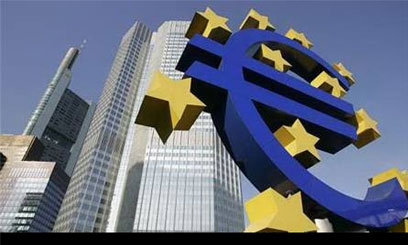HANOI, Oct 12 – German Chancellor Angela Merkel predicted Wednesday a eurozone bailout fund would be ratified this month despite rejection by Slovakia, and said all of Europe must help fight the crisis.
But she warned that dealing with the continent’s debt crisis — which has sent shivers around the world — will be long and even painful.
“The world economy is heavily affected by the financial crisis and every EU country must contribute its share to the fight against the debt crisis,” Merkel said at a business forum in Ho Chi Minh City in southern Vietnam.
She did not refer to events in Slovakia but her comments came a day after that country’s lawmakers rejected a revamp of the European Financial Stability Facility (EFSF) rescue fund.
Sixteen other nations in the currency bloc approved the revamped EFSF but the bailout mechanism requires unanimous endorsement of all 17 members to take effect.
“The EFSF will be ratified at the October meeting,” Merkel said, in an apparent reference to the European Union’s much-awaited summit on October 23.
Only 55 of 124 Slovakian legislators present in the 150-member chamber voted in favour, while nine were against and 60 did not vote, effectively blocking the revamp of the eurozone’s 440-billion-euro ($600 billion) bailout fund.
The vote also toppled the centre-right government of Prime Minister Iveta Radicova.
The opposition left Smer-SD said it was ready in a repeat ballot to vote in favour of the EFSF fund, in exchange for a snap election.
Eurozone leaders agreed in July to boost the EFSF’s powers in the hope of stemming fallout from the bloc’s deepening sovereign debt crisis which now threatens the euro project, the bloc’s banking system and the economy.
The changes are key for going ahead with a second bailout for Greece and the emergency recapitalisation of banks.
EFSF was set up after Greece was first bailed out to save it from default in May 2010. Slovakia abstained from the first Greek bailout.
“The euro has been and will always be a strong currency. Given the public debt issues at some of the European Union’s member countries, I don’t want the EU to become a debt union, but a strong union instead,” Merkel said.
Billionaire investor George Soros and about 100 former European dignitaries Wednesday published an open letter warning that the eurozone debt crisis could bring down the global financial system.
The group, calling themselves “concerned Europeans,” appealed to governments to establish an institution that can provide liquidity to the whole eurozone, a strengthening of financial market oversight and a revised EU growth strategy.
Merkel arrived in Vietnam for an official visit on Tuesday, after weekend talks where she and French President Nicolas Sarkozy held a pivotal meeting aimed at calming Europe’s economic storm.
Global markets responded with relief after the two leaders insisted they were united on the goal of stabilising the eurozone and Sarkozy promised “lasting, global and quick responses before the end of the month”.
He said Europe must arrive “united and with the problems resolved” at a November 3-4 meeting of the G20, the world’s advanced and emerging economies.
In Vietnam, Merkel urged major economies beyond the EU to cooperate in the fight against the debt troubles, but she said the G20 talks “can’t be a one-stop solution to the crisis.”
US President Barack Obama has called on Europeans to act fast.



































